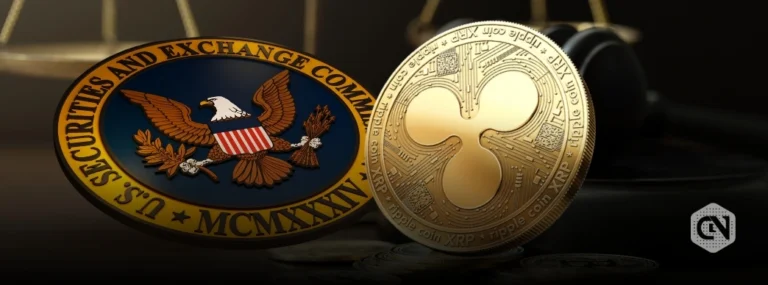Pro-XRP lawyer Fred Rispoli outlined Ripple’s strategy for its ongoing legal battle with the U.S. Securities and Exchange Commission (SEC). He hinted that the potential significance of certain securities laws could be a key factor in Ripple’s cross-appeal. Additionally, CEO Brad Garlinghouse emphasized XRP’s non-security status and allayed the community’s concerns.
What will happen to Ripple’s masterstroke in cross-appeal?
Rispoli’s revelations came after the SEC confirmed it would appeal a federal judge’s ruling in its case against Ripple. On October 2, the SEC filed a notice of appeal with the Second Circuit Court of Appeals, marking the next chapter in a four-year legal battle with blockchain companies. The lawsuit stems from the SEC’s allegation that Ripple’s XRP token sale violates federal securities laws.
Fred Rispoli, who is known for his strong support for XRP, revealed a detailed schedule for the legal proceedings, but more importantly, he shed light on Ripple’s countersuit strategy. He stressed that the company is likely to invoke state-level securities laws, such as blue sky laws, which protect investors from fraud and unregistered securities sales.
Ripple will make that claim in its counterclaim.
— Fred Rispoli (@freddyriz) October 3, 2024
When asked how these laws would affect blockchain companies’ defense, Rispoli said only that “Ripple will make that argument in its counterclaim.” For context, the Blue Sky Act is named after the idea that some speculative investment schemes have no substance beyond a “blue sky.”
These laws impose strict requirements on the offering of securities within each state. Additionally, the Blue Sky Act requires the registration of securities, regulates brokers and dealers, and requires investment professional licensing. More importantly, it is designed to protect investors from fraudulent sales tactics and worthless speculative investments.
Rispoli’s suggestion that the Blue Sky Act will feature prominently in Ripple’s cross-appeal adds an interesting dimension to the case. While federal securities laws enforced by the SEC are the primary battleground, the introduction of state-level regulations could complicate the SEC’s claims.
Blue sky laws vary by state, and invoking them could give Ripple additional legal leverage. This is especially useful when claiming that the sale of XRP does not violate state-level securities regulations.
SEC Appeal Details
The SEC is currently seeking to overturn key portions of Judge Annalisa Torres’ July 2023 ruling. In the ruling, the judge found that Ripple’s sale of XRP to institutional investors violated federal securities laws, but that its programmatic sale to retail investors did not.
The SEC’s attempt to file an interlocutory appeal of this decision was denied. Despite this setback, federal regulators are moving forward with an appeal to the Second Circuit Court of Appeals aimed at challenging the court’s interpretation of securities laws in this case.
In a public statement, an SEC spokesperson argued that Judge Torres’ decision violates “decades of Supreme Court precedent and securities law,” according to a CoinDesk report. They also expressed confidence in the upcoming appeal.
But Ripple seems to be putting up an equally staunch defense. Garlinghouse was vocal in his criticism of the SEC’s notice of appeal. In an article about X, Garlinghouse said:
“If Mr. Gensler and the SEC were reasonable, they would have gotten out of this case a long time ago. It is certainly not protecting investors and is instead hurting the SEC’s credibility and reputation.”
Garlinghouse further argued that the SEC had “lost everything that mattered.” Additionally, he reiterated the company’s position that XRP’s non-securities status is now established legal precedent. He also noted that the SEC’s previous unsuccessful attempt at an interlocutory appeal shows it “does not intend to challenge XRP’s status as a non-security.”
Also read: Monero partners with Ripple in XRP SEC lawsuit


